Traditional Portuguese Food!
Traditional Portuguese dishes
Portugal is known because of her great cuisine. I will tell you what are the most traditional and common dishes of this beautiful country.
As I already told you in one of my other blogposts, you must try the Francesinha when you come to Porto. I posted a blog article with the recipe of the Francesinha, so you can consult that one for more information about this dish. The only thing I will say about it, is that it is made of cheese and meat, and it's really caloric! The locals of Porto always like to discuss about where in town you can eat the best Francesinha.
Furthermore, Portuguese people love codfish (“bacalhau”) and they like to prepare the codfish in various ways. For example, bacalhau à brás consists of codfish, fried onion, olives, scrambled egg, chopped parsley, and fried potatoes. Bacalhau com natas has codfish, cream (“natas”) fried potatoes and onion. Bacalhau com broa includes ingredients as codfish, potatoes, cornbread crumbs (broa), onion and garlic. There exist several more dishes made with codfish, all very delicious!
Caldo verde is a traditional Portuguese soup. They usually make it with olive oil, kale, potatoes, salt, onion and garlic. You can also add meat if you like. This dish is typically consumed during Portuguese parties, like weddings or birthdays.
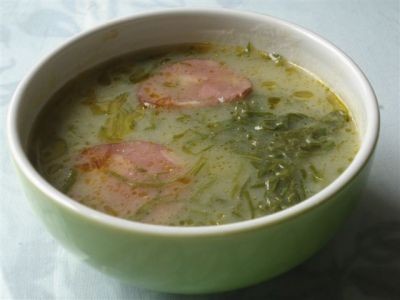
Caldo verde
Caldeirada is a fish stew that includes various fish types, potatoes, various vegetables (onions, tomatoes, green peppers, etc. ), and also other ingredients like spices and vermicelli, and several wine types. The fish types can be for example shellfish, squid or octopus, whitefish, swordfish, and so on. Very healthy!
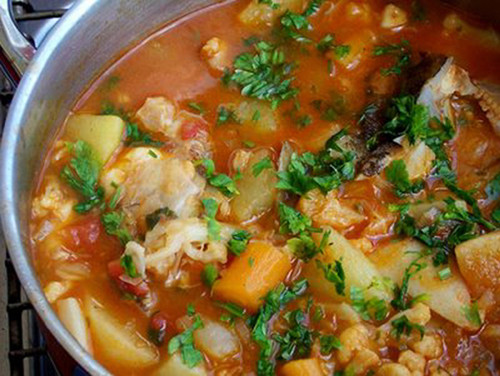
Caldeirada
Tripas à moda do Porto is beef stomach with white beans. This dish comes from the 14th century when the Castilians blocked the entrance of the Tagus river and attacked Lisbon. The prices of food rose. The people from Porto managed to make a supply fleet and to slip it through the blockade of the river Tagus. Thus, all available food, particularly meat was sent to Lisbon. The people from Porto were obliged to eat the organs of animals, like tripe. That’s why people from Porto are (still) called 'tripeiros'.
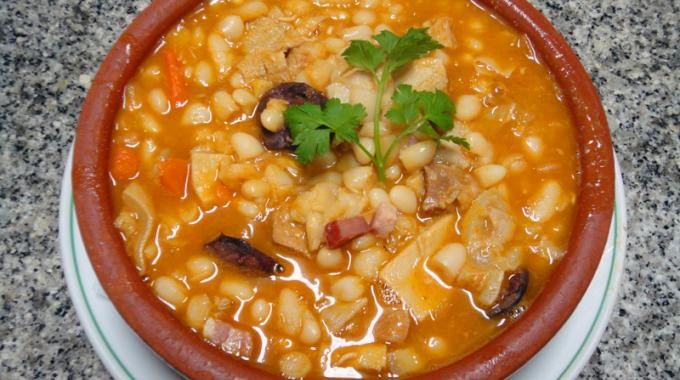
Tripas
Pica Pau is a dish made of fried meat that is cut into small pieces, and it usually comes with pickles. Originally the dish is with pork meat, but beef is also an option. It’s made with garlic, olives, mustard butter and beer and you can add some piripiri. The dish carries the same name as the animal (wood-pecker), but it has nothing to do with it!
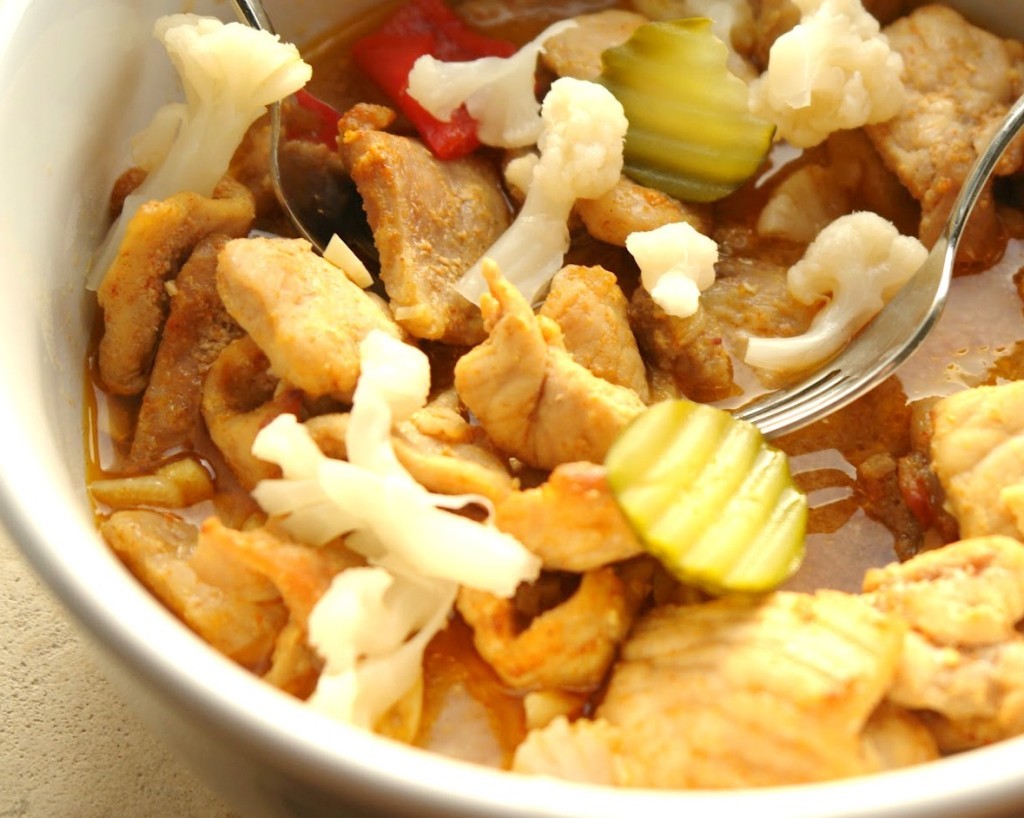
Pica pau
Sardinhas assadas (grilled sardines) are eaten particularly on the day of São João, as I already talked about in my blog about the traditional festival of Porto. Sardines are very important in the culture of Portugal. They have a very strong and not so good smell, but they taste very good! Except for that people usually eat the sardines during the São João festival, it is also a common dish Portuguese people eat during the summer.
Arroz de Pato is a dish that is always successful in Portuguese families. It means “rice with duck”. There are many ways to make this dish, and it’s typically consumed during winter time. It mainly comes with chorizo and bacon on top, and the layers are made of duck and rice.
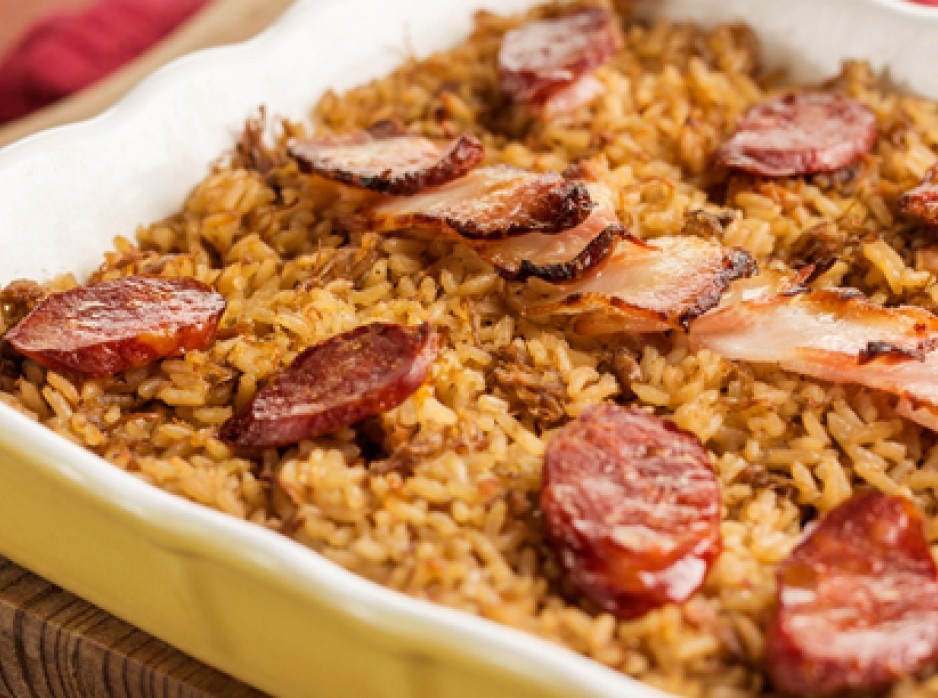
Arroz de pato
Alheira is a sausage that contains various kinds of meat, like duck, chicken, veal or sometimes rabbit. It also contains bread and the sausage can be fried. Garlic is also a common ingredient for this dish and it usually comes with fried potatoes. You can also order your alheira with an egg on top of it!
Photo gallery
Content available in other languages
- Español: Comida portuguesa tradicional!
- Polski: Tradycyjne portugalskie jedzenie!
- Italiano: Cibo tradizionale portoghese!
- Français: La cuisine portugaise traditionnelle
- Türkçe: Geleneksel Portekiz Yemekleri!
- Português: Comida tradicional Portuguesa!
- Deutsch: Traditionelles portugiesisches Essen!
- Nederlands: Traditioneel Portugees voedsel!
Want to have your own Erasmus blog?
If you are experiencing living abroad, you're an avid traveller or want to promote the city where you live... create your own blog and share your adventures!
I want to create my Erasmus blog! →








Comments (0 comments)